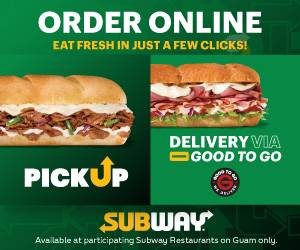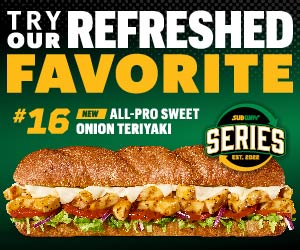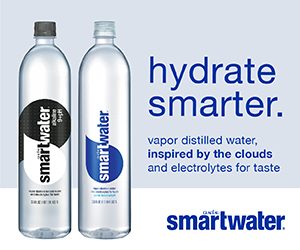In a time when consumers are beginning to seek out alternative sources of fuel, petroleum giants still continue to drive Guam’s and the region’s energy landscape, just as they do in most of the developed world. Aside from gas pumped at the stations, petroleum companies diversify their business offerings through convenience stores, restaurant partnerships, fuel contracts and supplying fuel products for outer islands.
 South Pacific Petroleum Corp. runs 11 combination stores with 76 and Circle K franchises and two standalone stores. Douglas R. Dean, general manager of SPPC, says these sites are not as prolific as some of the other companies on island, so strategic site placement becomes crucial.
South Pacific Petroleum Corp. runs 11 combination stores with 76 and Circle K franchises and two standalone stores. Douglas R. Dean, general manager of SPPC, says these sites are not as prolific as some of the other companies on island, so strategic site placement becomes crucial.
“When we choose a location, population density is something we certainly look at, but some companies also occasionally look at passing population, which means that the density of traffic on the road can make a difference in purchases made. People who are traveling to the center of the island for work, for example, will cause a shift in population density toward that direction. At SPPC, we try to look more at static village population density than passing population density.”
By that standard, Dean says SPPC’s Dededo locations have the highest turnover rates and profit margins of all its sites, due to the Northern village having the highest population density and, thus, the greatest centralized demand. “The oil business revolves around serving the community,” he says.” And population density factors largely into that, especially on Guam. If we were in a large city, where people rely more on public transportation and walking to get around, then population density doesn’t play as large of a role. But here, where the public transport system is highly under-utilized, population density becomes much more important.”
Dean also says much of 76/Circle K’s success to is due to the unique nature of the products it stocks. “We partner a lot with our vendors,” he says. “Because we run all our own stores, we’re able to offer the vendor a more complete offer for what might be a new product in the island.” He adds that, because all 13 Circle K convenience stores receive their stock from a single central location, SPPC is able to offer its partners complete product coverage at all 76 and Circle K locations.
“Most of the other convenience stores on the island do product runs, at most, in small chunks and very frequently in single units,” he says, “so we offer something very different with our package, and vendors appreciate that. I’d like to think that’s why our stores feature certain items you can’t find anywhere else — because all 13 of our stores stock as one.”
Dean attributes Circle K’s unique choice of items to constant ongoing research on the part of SPPC. “Sometimes a vendor will offer us something new, and we’re always interested because, as most people know, Guam isn’t always a reliable place to find things,” he says. “But generally, we talk to suppliers, suppliers talk to us, we do our own research in the states on an annual basis, we go and review what products are offered and try to bring those to Guam. And obviously, after a while, if something doesn’t sell, then we don’t buy any more of it.”
In addition to its local gas stations and convenience stores, SPPC also has contracts to supply fuel to several businesses, none of which Dean was willing to name. The company also intermittently provides fuel to several fishing fleet boats that occasionally make port in Guam’s harbors and provides liquid petroleum gas products to the outer islands of the Federated States of Micronesia for fuel, cooking and heating.
In spite of SPPC’s continued success, however, Dean says there are no plans to expand operations anytime soon. “I believe that the island already has a very large number of retail sites. The density is high. Compared to the U.S., our average site pumps maybe half of what the U.S. would consider a good site. So I personally don’t believe that there’s any reason to develop more, and I don’t have any expectation that we’ll see less.”
Instead of looking toward development, Dean wants to keep SPPC’s focus on trying to keep costs down and trying to provide balanced service to the community. “The population of Guam has been pretty stagnant for about 10 years, and it’s pretty hard to look at growth when you’re dealing with a stagnant population,” he says. “At this point, we’re just working on maintaining the status quo and keeping our heads above water.”
Between competition from other fuel providers, rising fuel prices and a possible 40% minimum wage increase on the horizon, SPPC has had its share of obstacles to contend with, but Dean says that the company still does its best to do right by its customers and its employees.
“Interestingly enough, I suppose one of our greatest achievements came when SPPC bought the assets of Esso,” he says. “The founding president, the late Mr. Hahn, chose to bring all of our staff — by which, I mean employees who had previously been contracted under individual sites like those of other providers — he brought them all in as staff so that we could provide them all with access to health insurance. And despite the cost of doing that, we believe that we created a great benefit for all of our employees, and because we’ve had this in place for so long, the new changes to health care laws really haven’t impacted us as deeply as they have others. It’s something I feel pretty proud of, actually.”
 Charles Ewart, who took the helm as Mobil Oil Guam Inc.’s president and country manager on Feb. 21, says Mobil is forging ahead with no signs of slowing. In addition to its 31 stations throughout Guam and the NMI, Ewart says Mobil sells fuel to more than 100 entities in the private and public sectors, counting corporate and government entities in the resale, aviation, marine, hotel, construction, transportation and powergeneration fields among its customers.
Charles Ewart, who took the helm as Mobil Oil Guam Inc.’s president and country manager on Feb. 21, says Mobil is forging ahead with no signs of slowing. In addition to its 31 stations throughout Guam and the NMI, Ewart says Mobil sells fuel to more than 100 entities in the private and public sectors, counting corporate and government entities in the resale, aviation, marine, hotel, construction, transportation and powergeneration fields among its customers.
“[Mobil] is a major supplier of petroleum products to Guam, the Northern Mariana Islands and the Republic of Marshall Islands. It also operates a fuel terminal in Cabras, and our upgraded terminal networks place us in a good position to continue ensuring the reliability of our supply to our customers,” Ewart says.
Mobil Oil Guam has the largest network of service stations on the island, with 20 Mobil stations situated across the island housing five On the Run convenience stores and 15 Mobil Marts. Ewart adds that several of the Mobil convenience stores have undergone updates “to enhance our customers’ experience at our service stations. In today’s petroleum industry, we seek to deliver unique benefits to our customers that provide a compelling reason for them to do business and/or refuel with us. We do this through quality fuel products reliably delivered to keep our customers moving, our Smiles program that allows our customers to travel further and programs with strategic partners, such as First Hawaiian Bank and McDonald’s.”
According to Ewart, Mobil’s larger On the Run stores are “full-service convenience stores that cater to customers with busy and demanding lifestyles, who appreciate the convenience that a network of stores provides. Our customers’ daily needs change constantly, and it is not surprising to see someone come in more than once a day for something he or she might need on-the-go.” He says that all Mobil stores aim to stock items that Mobil predicts its customers will want to buy from a convenience store. Among items that customers purchase from Mobil convenience stores, beverages and tobacco rank among the highest, with telecommunications products such as cell phones and phone cards quickly growing in popularity. Ewart says that, if trends continue, telecom products could soon become some of Mobil’s top-selling items.
While the convenience-store business is an incredibly competitive business on island, Ewart says that Mobil strives to bring good value and convenience to its customers. “Our promotional offers are well-positioned to provide what our customers want,” he says, “And we are also able to leverage on our partnerships with other service providers to meet our customers’ needs. Mobil stores serve freshly brewed Island Java coffee, proudly roasted by the Mountanos Bros Coffee Co. from the U.S. mainland. In addition, we are pleased to have McDonald’s and Subway as restaurant partners with us.”
Ewart also says that Mobil’s Smiles loyalty program continues to be wellreceived, according to customer survey results. “Our customers tell us that they want interesting ways to build and redeem their points, so we’ve been partnering with United Airlines so that they can exchange their points for air miles,” he says, adding that customers are also given the option to redeem their Smiles points for fuel.
Within the next year, Ewart says that Mobil will be working to expand its redemption offers and rewards that will available for customers through the Smiles loyalty program. “We’re excited about how we can serve our customers well in Guam and CNMI better,” he says. “We have a slate of promotions — from free trips to free food — that our customers can look forward to, and they can also look forward to the launch of our new fuels offering later this year.”
Ewart adds that Mobil gives back to the community whenever possible, citing the importance of being a good corporate citizen in Guam, Saipan and the FSM. “We try to do this by ensuring a focus on operational integrity, health and safety, protecting the environment, and commitment to product quality. Mobil Oil Guam has the support of a regional and global supply network to ensure that we provide safe and reliable supplies of fuel and petroleum products to Guam, Saipan and the islands in the Pacific.
“Even as we continue to provide great loyalty offerings and promotions to our customers, we also seek to ensure that we upgrade and improve our stations, as well as supply delivery. The investment in our canopy replacement program and maintaining a terminal network throughout the region are great examples of ensuring we continue to run our business well as good neighbors.”

In spite of Mobil Oil Guam’s prodigious number of fuel sites, it isn’t the only distributor of Mobil products in Micronesia. Several of the company’s non-fuel petroleum products are distributed locally through BlueBay Petroleum, a division of Tan Holdings Inc. According to George Chiu, president, treasurer, and director of BlueBay Petroleum, BlueBay is responsible for the distribution of all Mobil lubricants throughout Guam, the NMI and the FSM, and the company operates several fuel sites on the island of Palau.
“We run a dealership network to distribute our products, but stocking and product placement is handled by the individual dealers or service station operators. We [also] have fuel supply contracts with all major airlines that service Palau,” Chiu says, “and we distribute fuel for both the aviation and marine industries in Palau.”
However, BlueBay isn’t only responsible for distribution and sales in the outer islands. Chiu says that BlueBay is responsible for maintaining the aviation depot at Palau International Airport and aids with marine industry maintenance, servicing recreational marine vessels via their dealership network and bunkering larger ships at the port of Palau.
“The rising cost of fuel price is a constant challenge,” Chiu says, echoing the problems that plague many of the region’s fuel providers. “We need to balance profit versus consumer affordability, and many times, we have elected not to pass on any cost increases that we see as being detrimental to the community. But we will be upgrading all of our Palau stations soon with new signage and a renewed focus on brand awareness.”
Last, but certainly not least among the petroleum giants, is IP&E Holdings LLC, which does business as IP&E Guam. IP&E owns and operates the retail, commercial and distribution assets that were formerly managed by Shell in Guam, Saipan and Palau. The company is responsible for the management of more than 25 retail service stations and also maintains fuel contracts with several entities in the government and private sectors. In addition to selling more traditional automotive fuel and petroleum-based lubricants, IP&E is also responsible for the sales and distribution of commercial fuel, aviation fuel and marine fuel, as well as liquid petroleum gas.
IP&E will soon be adding a new gas station complex to its considerable portfolio. The new 8,000-square-foot site, which is currently under construction, will be located in Upper Tumon across from the Bank of Hawaii. Furthermore, IP&E will be partnering with Blue Pacific Management — a Hawaiian company responsible for the management of several fast-food franchises in the region — to establish Guam’s first Jack in the Box restaurant as an annex to the new Shell location.

















No Responses to “Full tank: Petroleum industry leaders talk strategies”